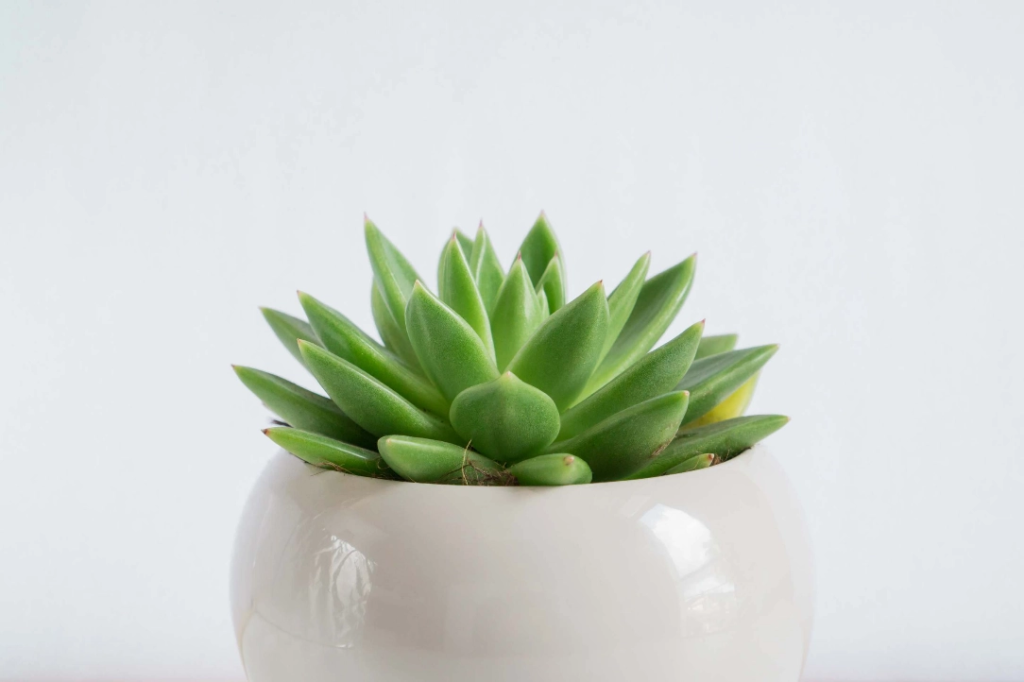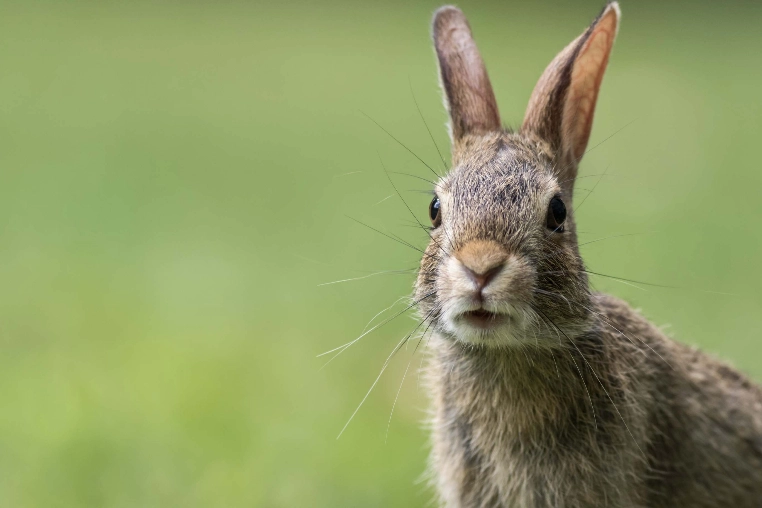
Introduction
Succulents have gained immense popularity as low-protection and visually attractive houseplants and out of doors garden additions. Their specific shapes, colourful colorings, and ability to keep water of their leaves make them an appealing preference for plant fans. however, for folks who also percentage their residing space with hairy buddies, a not unusual situation arises: do rabbits consume succulents? In this newsletter, we are able to explore the connection between rabbits and succulents, losing mild on their nutritional conduct, rabbit-resistant succulents, and strategies to protect these pleasant vegetation from being devoured.
Rabbits are herbivorous animals acknowledged for their love of munching on diverse plants and veggies. they have got a diverse food regimen that in particular includes grass, hay, leafy veggies, and sure end result. in terms of succulents, the solution to whether or not rabbits consume them or not isn’t a simple sure or no. It depends on several elements, including the rabbit’s weight loss plan, the availability of opportunity meals resources, and the precise succulent species.
Understanding Succulents
What are succulents?
Succulents are a set of vegetation characterised via their thick, fleshy leaves, stems, or roots which have the potential to preserve water. This variation allows them to continue to exist in arid environments wherein water is scarce. Succulents are available in a wide range of shapes, sizes, and colorings, with popular varieties along with Echeveria, Sedum, Aloe Vera, and Haworthia.
Popular types of succulents
There is a vast array of succulent species available, each with its own unique characteristics. Some of the most popular types include:
- Echeveria: Known for their rosette-shaped leaves and vibrant colors.
- Sedum: Diverse group of succulents with various foliage types and flowering habits.
- Aloe Vera: Renowned for its medicinal properties and distinctive spiky leaves.
- Haworthia: Small succulents with intricate patterns and a compact growth habit.
Do rabbits eat succulents?

The dietary habits of rabbits
Rabbits have a herbal inclination to chunk on flora, which includes succulents, due to their ever-developing teeth. They require a high-fiber diet to preserve their digestive health. however, now not all succulents are similarly appealing to rabbits. a few succulent species have a sour flavor or produce substances that deter rabbits from eating them.
Factors influencing rabbit’s diet
The likelihood of rabbits eating succulents can be influenced by various factors. These include the availability of alternative food sources, the rabbit’s age and health, and the succulent species itself. In times of scarcity, rabbits may resort to consuming succulents, especially if their preferred food sources are limited.
Rabbit-resistant succulents
While rabbits may nibble on certain succulent species, there are rabbit-resistant options available for those concerned about their plants’ well-being. Some succulents have natural characteristics that make them less appealing to rabbits. Examples of rabbit-resistant succulents include Agave, Euphorbia, and some varieties of Sedum. Incorporating these plants into your garden or indoor collection can help deter rabbits from causing damage.
Common Succulents That Rabbits May Eat

While rabbits tend to avoid certain succulents, it is important to be aware of the species that rabbits may find palatable. Here are a few common succulents that rabbits might eat if given the opportunity:
- Sedum spp.: Rabbits may be attracted to the fleshy leaves and tender stems of Sedum plants.
- Echeveria spp.: These rosette-shaped succulents can be appealing to rabbits, especially the softer varieties.
- Sempervivum spp.: Although rabbits tend to avoid mature Hens and Chicks, young offsets can be more enticing.
Protecting Succulents Indoors:
If you choose to keep succulents indoors where your rabbits roam freely, it’s vital to take precautions to protect both your plants and your pets. Consider the following measures:
- Elevated Planters: Place your succulents in elevated planters or hanging baskets to keep them out of reach of curious rabbits.
- Room Separation: Create physical barriers or designated spaces to keep your rabbits away from areas where succulents are displayed.
- Safe Room Design: Opt for rabbit-safe room designs, such as enclosing your succulents in glass terrariums or using shelves to keep them out of your rabbit’s reach.
Signs of Rabbit Damage on Succulents
If you suspect that rabbits have been feasting on your succulents, it is important to be able to identify the signs of rabbit damage. Here are a few common indicators that rabbits have been munching on your plants:
- Bite Marks: Look for clean, angled cuts on the leaves or stems of your succulents.
- Missing Leaves or Stems: Rabbits tend to nibble on specific parts of a plant, leaving behind partially eaten or completely missing leaves and stems.
- Fecal Pellets: Rabbit droppings near your succulents can indicate their presence and activity.
To discourage rabbits from nibbling on succulents, you can employ the following tactics:
- Scare Tactics: Place visually intimidating objects or devices in your garden to startle rabbits and discourage them from approaching your succulents.
- Noise: Use noise deterrents, such as wind chimes or motion-activated devices that emit high-frequency sounds, to startle rabbits and deter them from the area.
- Natural Barriers: Create physical barriers around your succulents using materials like stones, gravel, or prickly twigs to discourage rabbits from approaching.
- Companion Animals: Consider introducing a pet or predator that naturally preys on rabbits, such as a dog or cat, to deter them from your garden.
Factors Influencing Rabbit Behavior:
Several factors can influence whether a rabbit will choose to eat succulents. These include:
- Hunger: If rabbits have limited access to their preferred food sources, they may be more inclined to explore alternative options, such as succulents.
- Palatability: The taste and texture of succulents play a role in attracting or deterring rabbits. Some succulents may have a flavor or texture that rabbits find less appealing.
- Nutritional needs: If a rabbit’s diet lacks certain nutrients, they may try to seek them out by sampling different plant materials, including succulents.
Protecting succulents from rabbits
Preserving the beauty of your succulents while coexisting with rabbits is possible through various protective measures. Here are some strategies to consider:
Physical barriers
Installing physical barriers around your succulents can be an effective way to keep rabbits at bay. Fencing your garden or using wire mesh to create a barrier around individual pots can prevent rabbits from accessing the plants. Ensure that the barriers are tall and buried at least six inches into the ground to prevent rabbits from burrowing under them.
Natural deterrents
Using natural deterrents can help repel rabbits without causing them harm. Rabbits have a keen sense of smell, so planting strong-smelling herbs like lavender, rosemary, or mint around your succulents can discourage them from approaching. Additionally, some gardeners have had success with sprinkling crushed red pepper flakes or garlic powder around their plants as rabbits find the strong scent unpleasant.
Repellents
commercial repellents are to be had that may be applied directly for your succulents or the encompassing location. those repellents often comprise substances with sturdy odors or tastes that rabbits locate unpleasant. however, it is critical to pick out repellents which are safe for both the succulents and the environment, as a few products can be dangerous.
Ensuring the health of rabbits and succulents
Coexistence between rabbits and succulents is possible with proper care and attention to both. Consider the following tips:
Providing a balanced diet for rabbits
To limit the possibilities of rabbits turning to succulents as a food supply, make certain they’ve a nicely-balanced diet. provide an adequate supply of fresh leafy veggies, and rabbit-precise pellets. this could help fulfill their nutritional wishes and reduce their desire to feast on your succulents.
Creating a rabbit-friendly environment
To divert a rabbit’s attention from succulents, create an enriching environment for them. Provide toys, tunnels, and safe chewable items to keep them occupied. Additionally, designating a separate space for your rabbits to graze on rabbit-friendly plants can help steer them away from your beloved succulents.
Conclusion
In conclusion, rabbits have a natural inclination to bite on various plants, inclusive of succulents. but, no longer all succulents are equally attractive to rabbits, and there are techniques available to guard your flowers from their voracious appetites. by means of know-how the dietary conduct of rabbits, deciding on rabbit-resistant succulents, and enforcing protecting measures like physical barriers, herbal deterrents, and repellents, you may create a harmonious environment wherein succulents and rabbits can coexist peacefully
FAQ
Q1: Do rabbits eat succulents?
A1: Yes, rabbits may eat succulents, but it depends on various factors such as the specific succulent species, the availability of alternative food sources, and the rabbit’s diet and preferences.
Q2: What are some rabbit-resistant succulents?
A2: Some rabbit-resistant succulents include Agave, Euphorbia, and certain varieties of Sedum. These plants have natural characteristics that make them less appealing to rabbits.
Q3: What are common signs of rabbit damage on succulents?
A3: Common signs of rabbit damage on succulents include clean, angled bite marks on leaves or stems, missing or partially eaten leaves and stems, and the presence of rabbit fecal pellets near the plants.
Q4: How can I protect succulents indoors from rabbits?
A4: To protect indoor succulents from rabbits, consider placing them in elevated planters or hanging baskets to keep them out of reach. You can also create physical barriers or designated spaces to separate rabbits from the areas where succulents are displayed.
Q5: What are some tactics to discourage rabbits from nibbling on succulents?
A5: To discourage rabbits from nibbling on succulents, you can use scare tactics by placing visually intimidating objects or using noise deterrents such as wind chimes or motion-activated devices. Additionally, creating natural barriers using materials like stones or gravel can help deter rabbits. Introducing a companion animal that preys on rabbits, such as a dog or cat, can also serve as a deterrent.
.
